In today's dynamic world of sports, creating an inclusive environment is more important than ever for fostering teamwork and camaraderie. A well-defined inclusion policy not only empowers athletes of all backgrounds but also enriches the overall team experience. By embracing diversity and encouraging participation, we can build a stronger, more resilient team culture. Join us as we explore the key components of an effective sports team inclusion policy that can make a meaningful impact!

Inclusivity Statement
Inclusivity initiatives in sports teams enhance diverse participation, fostering an environment where every athlete regardless of gender, race, ability, or sexual orientation feels valued and supported. These inclusivity statements emphasize the importance of equal opportunities within youth leagues or professional organizations, reinforcing the commitment to building a culture that celebrates differences. Policies may include designated training programs, outreach efforts to underrepresented communities, and partnerships with advocacy organizations aimed at encouraging engagement. Events such as diversity workshops and inclusive sporting competitions play a crucial role in promoting teamwork and understanding, ensuring that everyone, from players to coaches, contributes to a positive and welcoming team atmosphere.
Commitment to Diversity
A sports team's inclusion policy focuses on fostering an environment of diversity and equity. This commitment begins with actively recruiting athletes from various backgrounds, ensuring representation of different ethnicities, genders, and abilities. Aiming for participation from underrepresented groups, the team may conduct targeted outreach programs in local communities, schools, and organizations, encouraging involvement in sports. Policies are established to promote respect and discourage discrimination based on race, sexual orientation, or physical limitations, emphasizing a zero-tolerance stance on bullying. Regular training sessions and workshops are organized to raise awareness about inclusivity and the importance of diverse perspectives in enhancing team performance. Additionally, the team collaborates with organizations such as the Special Olympics and local diversity councils to strengthen their commitment to inclusion and provide pathways for all athletes to thrive. Each athlete is celebrated for their unique contributions, creating a supportive atmosphere that values teamwork, respect, and mutual understanding.
Zero Tolerance Policy
The Zero Tolerance Policy for sports teams emphasizes a commitment to creating a safe and inclusive environment for all participants, regardless of age, gender, ethnicity, or ability. This policy clearly outlines unacceptable behaviors such as harassment, discrimination, bullying, and violence that undermine team cohesion and participant well-being. Events documented under this policy can include verbal abuse during practice sessions or physical altercations during games. Enforcement measures will involve immediate investigation by designated officials, with possible consequences ranging from suspension to expulsion from the team, depending on the severity of the infraction. This approach aims to uphold the core values of sportsmanship, respect, and teamwork, fostering a culture of inclusion and support within the sports community.
Reporting and Support Channels
An inclusive sports team environment fosters participation and ensures fairness for all members. Reports of any concerns regarding inclusion, such as discrimination or harassment, can be submitted through the team's dedicated email (inclusivesupport@teamsport.org) or via the anonymous hotline (1-800-555-0199). Support channels are available through trained advocates who specialize in conflict resolution and mental wellness. Regular workshops and feedback sessions will occur every quarter at the community center (123 Sports Lane, Springfield) to address ongoing issues and promote inclusivity. Awareness campaigns will further educate members on acceptable behaviors and the importance of diversity within sports participation.
Continuous Education and Training
Continuous education and training for sports teams enhances athlete performance and promotes inclusivity across diverse backgrounds. Programs may focus on skill development, teamwork principles, and mental resilience strategies, often delivered by certified coaches with expertise in various disciplines. Workshops conducted in facilities such as community centers or sports academies can facilitate engagement (with attendance numbers often exceeding 30 participants). Additionally, ongoing education initiatives can feature online courses and webinars on sports psychology and nutrition, supporting holistic development. Inclusion training emphasizes understanding different cultures, fostering respect and unity among teammates, essential for cohesive team dynamics. Regular feedback sessions can assess the effectiveness of these programs, ensuring continuous improvement and adaptation to athletes' evolving needs.
Letter Template For Sports Team Inclusion Policy Samples
Letter template of sports team inclusion policy for athletes with disabilities
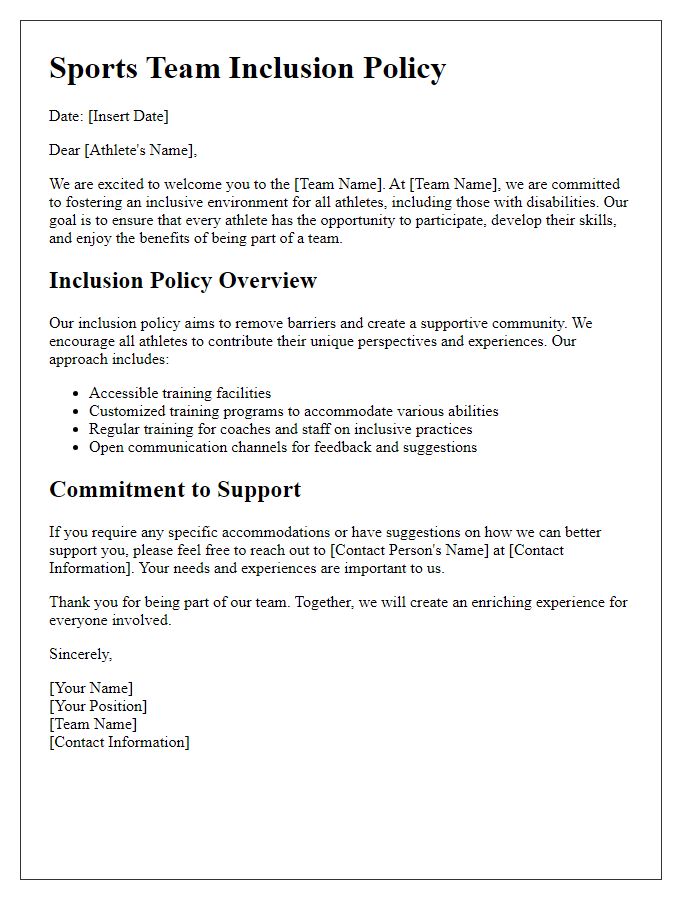
Letter template of sports team inclusion policy for community outreach programs
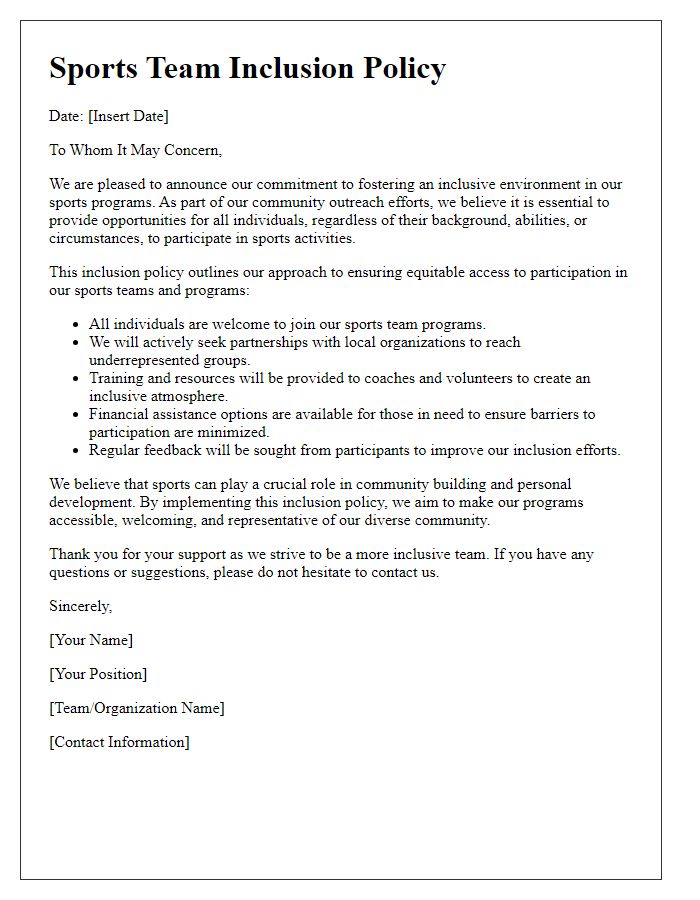
Letter template of sports team inclusion policy for schools and educational institutions
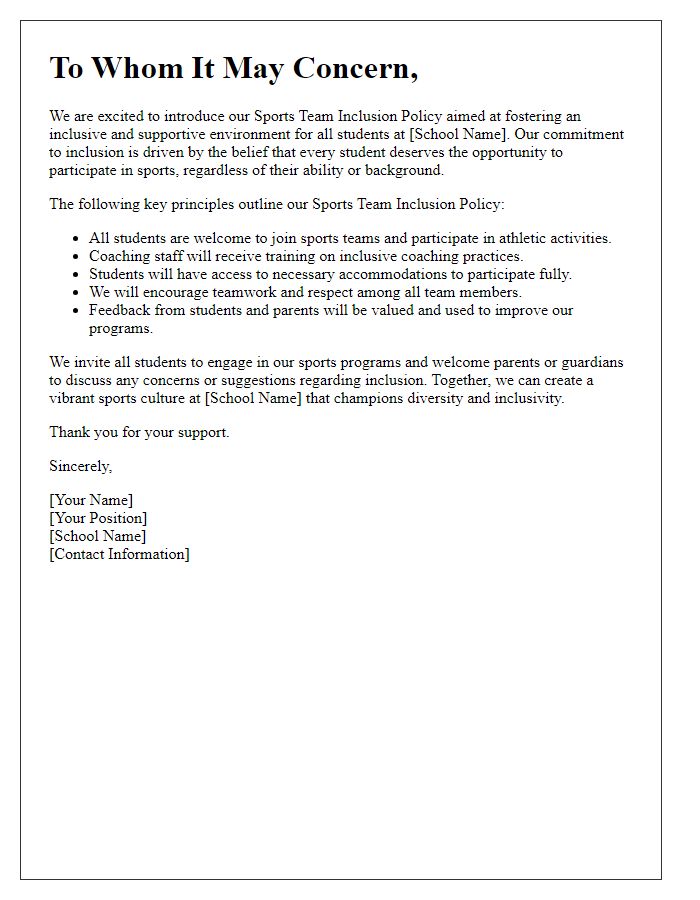
Letter template of sports team inclusion policy for volunteering initiatives
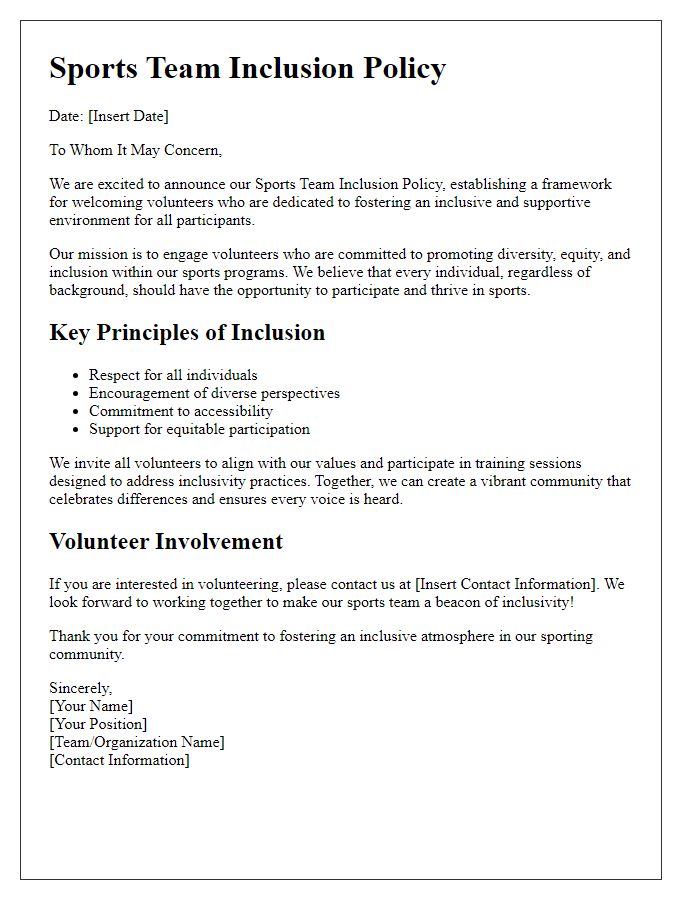

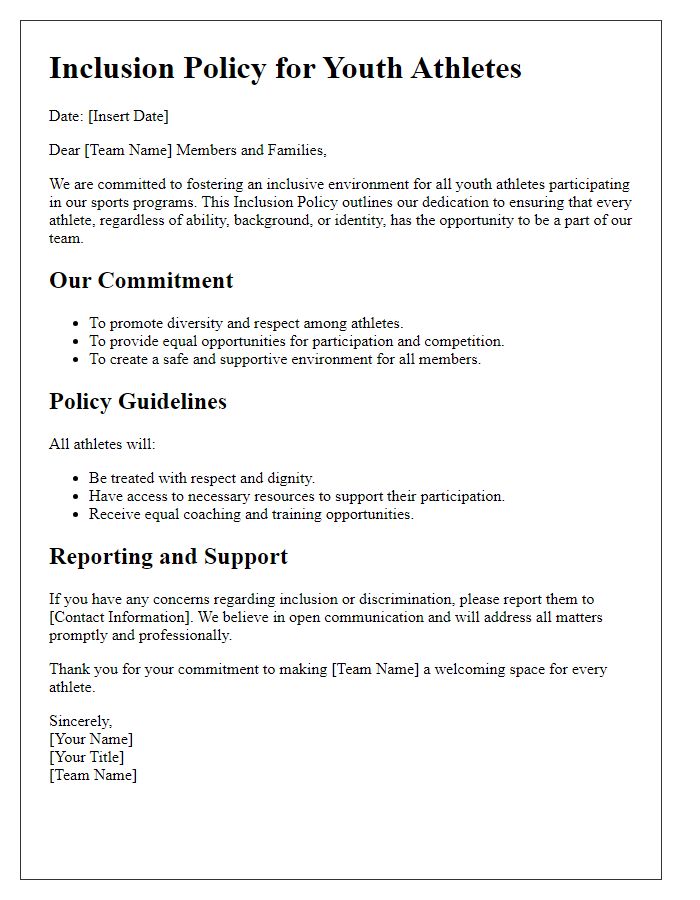
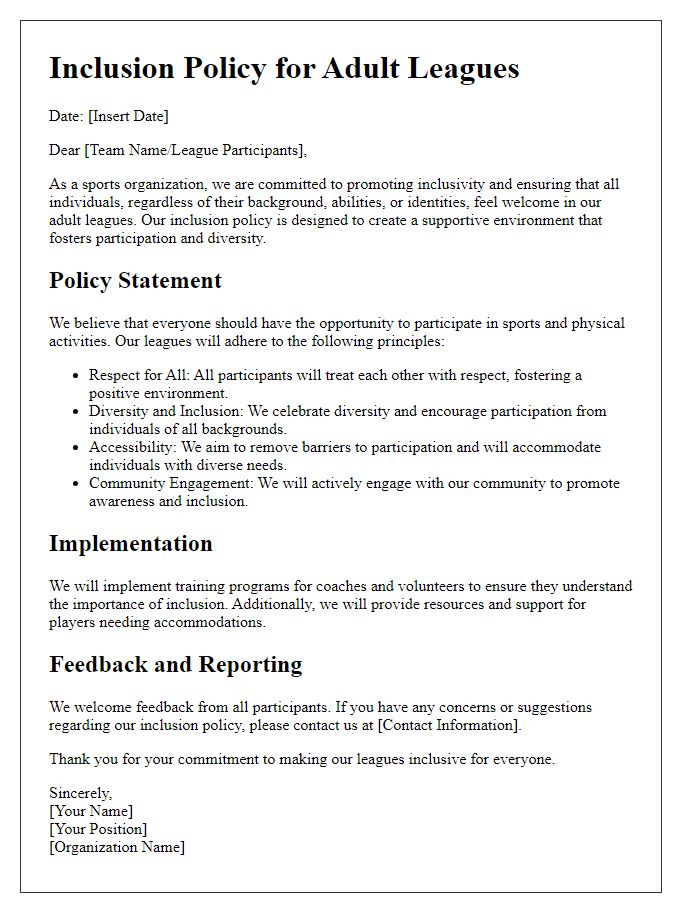
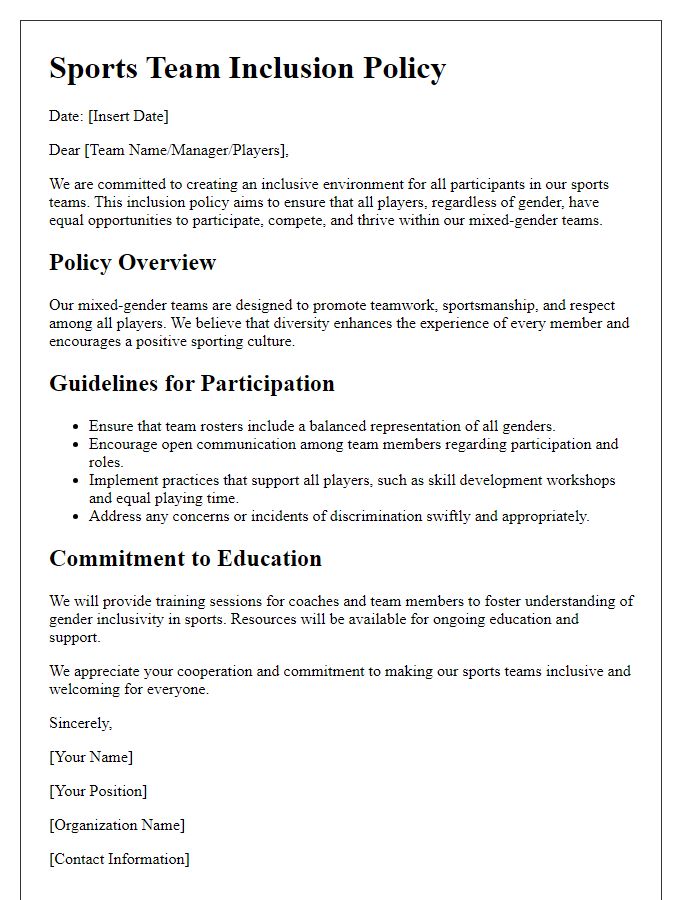
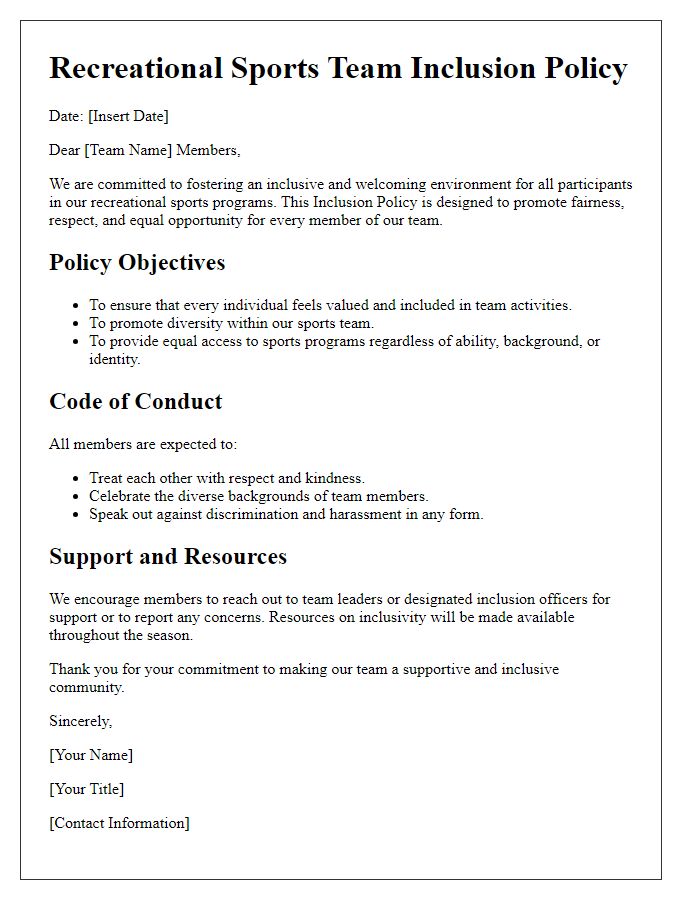
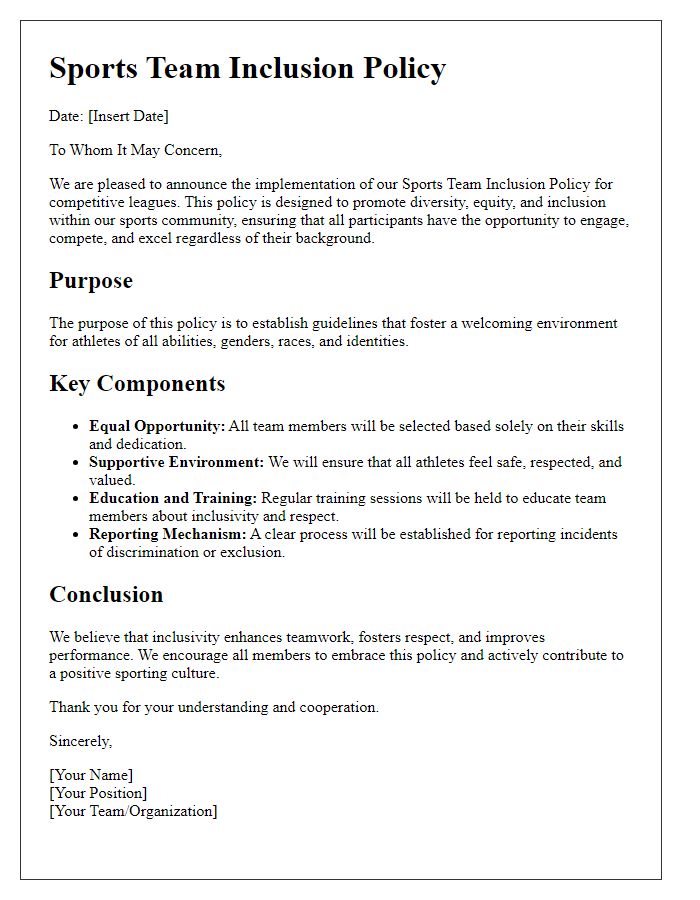
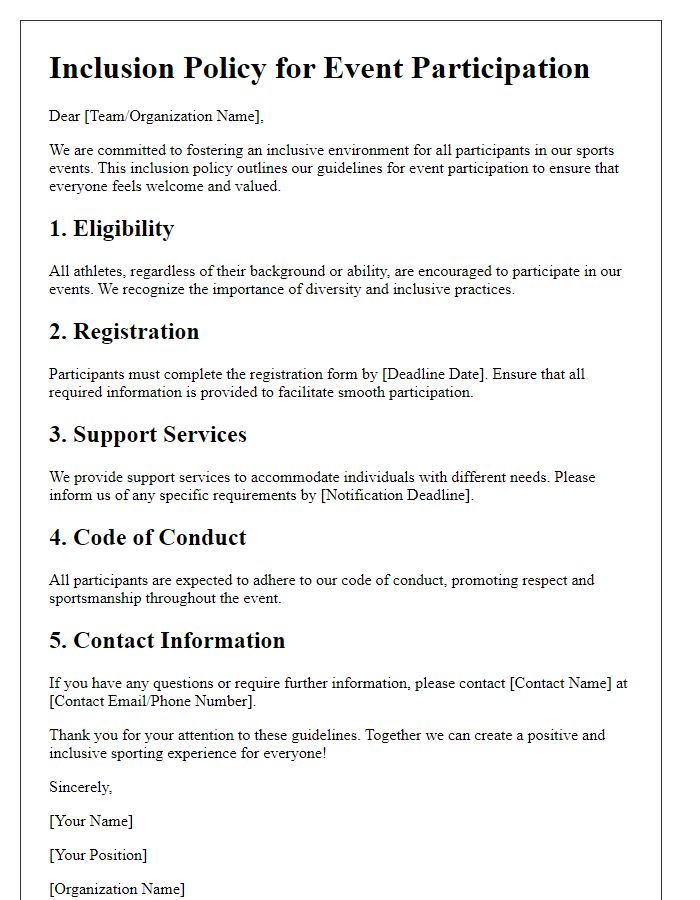


Comments